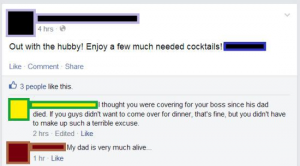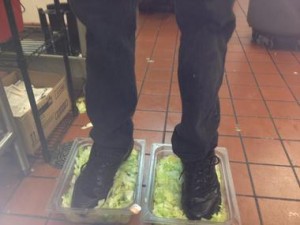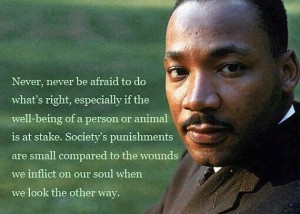Ethics–Who Cares?
“But it’s cheaper to do it this way.”
“No one will ever know.”
“It doesn’t really hurt anyone.”
“It’s easier this way.”
“It takes less time.”
“What difference does it make?”
“Who Cares?”
There are times in all of our lives when we are faced with a situation in which we can do the right thing, or we can do that which is easier/faster/cheaper. So what do you do? And who really cares?
This friend cares.
The patrons of this restaurant care.
Students and parents in Alabama care.
Students complained that their test answers were changed and some reported being given answers during standardized testing. This led to discovery of widespread cheating by teachers and administration in their effort to fraudulently raise school test results. In April 2015, 11 of the teachers and administrators involved in this scandal were found guilty for their roles in changing students’ test scores on standardized tests, with some facing up to 35 years in prison.
The families of 9 people who died due to contaminated peanut products, and hundreds of other people, care.
US Centers for Disease Control and Prevention believe tainted peanut products led to the deaths of nine people and sickened more than 700 others. These people were harmed when peanuts, known to be contaminated with salmonella, were still shipped out to be used in production of food products. The executive leader of the peanut company was just sentenced to 23 years in prison, effectively a life sentence for the man who knew of the contamination before the peanuts left his facilities.
Anthony Gordon’s family cares.
Anthony, 27, committed suicide within a day of being admitted into a large mental health hospital. Anthony was known to have a serious mental health condition and a history of prior suicide attempts. He was on suicide watch and was to be visually checked every 10-15 minutes. That didn’t happen. He died. Documentation of checks was found to be falsely completed; staff made a clear effort to cover up the fact that safety precautions had not been followed. Pre-identified environmental safety hazards had gone unaddressed. The lesson to hospital employees about the critical importance of performing their job roles and acting on concerns identified cost a young man his life.
So, here we are at Grafton. How is all of this applicable to us? An employee might be tempted to:
document service not actually provided;
falsify dates/times on a document;
clock in for a colleague to cover running late;
report working on site yet at home on personal errand;
use Grafton gas card for personal vehicle;
use Grafton credit card for personal purchase;
observe an employee mistreating a client and not act.
One of Grafton’s Core Values, Integrity, directly ties to Ethics. It is an expectation of all of us. Ethics displayed by Grafton employees is fundamental to ensuring: accurate billing of services, compliance with federal/state regulations, accurate payment of employees,……ultimately at the top of the list – client safety. We are entrusted with the treatment and the very lives of the people we support. That’s not a melodramatic statement; it’s reality. From a client’s perspective, employees’ ethical actions assure I am fed, in a clean and safe environment, get the medications I need, get the treatment help that I need, give me hope…..
So how do you answer the questions, “Who cares? You?”


